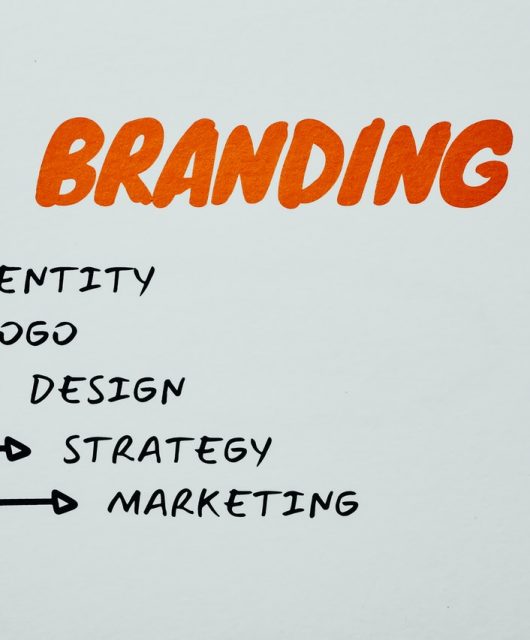Top 10 Mistakes in GSA Contracting and How to Avoid Them
 Navigating the complexities of GSA contracting can be a game-changer for businesses seeking to expand into the federal marketplace. A General Services Administration (GSA) contract provides companies with the opportunity to sell products and services directly to government agencies, offering a streamlined path to steady revenue and long-term growth. However, securing and managing a GSA contract requires careful adherence to strict guidelines, and obtaining GSA assistance can significantly simplify this process.
Navigating the complexities of GSA contracting can be a game-changer for businesses seeking to expand into the federal marketplace. A General Services Administration (GSA) contract provides companies with the opportunity to sell products and services directly to government agencies, offering a streamlined path to steady revenue and long-term growth. However, securing and managing a GSA contract requires careful adherence to strict guidelines, and obtaining GSA assistance can significantly simplify this process.
Mistakes in the contracting process can lead to serious repercussions, including compliance violations, financial penalties, and even the termination of valuable contracts. For many businesses, these missteps stem from avoidable errors—ranging from pricing inaccuracies to insufficient reporting—that disrupt operations and jeopardize success.
At Price Reporter, we’ve spent over 18 years helping businesses navigate the complexities of GSA contracts. With expertise in compliance monitoring, market analysis, and contract management, our team provides businesses with the tools and strategies they need to avoid costly mistakes and maximize their GSA opportunities. This article will guide you through the top 10 mistakes commonly made in GSA contracting and provide practical advice on how to sidestep these pitfalls. By understanding these challenges and implementing proactive strategies, you can protect your contracts, maintain compliance, and unlock the full potential of GSA opportunities.
Why Avoiding Mistakes in GSA Contracting Matters
Mistakes in GSA contracting can have a ripple effect on your business, impacting not only your operations but also your reputation and compliance status. The federal government holds contractors to high standards, expecting adherence to strict guidelines, transparency, and consistent performance. Even minor errors can lead to significant setbacks, including costly penalties or the loss of your GSA contract altogether.
From an operational standpoint, non-compliance with GSA regulations can disrupt workflows, delay projects, and erode trust with government agencies. For example, failing to maintain accurate product catalogs or missing reporting deadlines can cause inefficiencies and reduce your eligibility for future contracts. Worse, compliance violations may trigger audits or investigations, diverting valuable resources and time from your core business activities.
Financially, the stakes are even higher. Penalties for non-compliance, such as failing to remit the Industrial Funding Fee (IFF) or mismanaging pricing structures, can quickly add up. Beyond direct costs, the damage to your reputation may limit your ability to secure new opportunities. Government agencies prefer reliable contractors, and a record of poor performance or compliance issues can leave your business at a competitive disadvantage.
Proper planning and management are essential to mitigating these risks. By proactively addressing compliance requirements, keeping detailed records, and regularly reviewing your contract’s terms, you can ensure smooth operations and protect your GSA status. The benefits of careful oversight extend beyond avoiding mistakes—companies that prioritize compliance often experience higher levels of trust, better relationships with government buyers, and greater long-term success in the federal marketplace.
The Top 10 Mistakes in GSA Contracting
Neglecting Compliance with the Trade Agreements Act (TAA)
The Trade Agreements Act (TAA) requires that all products sold under a GSA Schedule are made in the U.S. or in designated countries that promote fair international trade. Non-compliance with TAA requirements can result in penalties, contract termination, or removal of non-compliant items from your catalog.
- Example: A business unknowingly lists products manufactured in a non-compliant country such as China, which violates TAA regulations.
- Tip: Regularly audit your product offerings and verify the country of origin for each item to ensure compliance with TAA requirements.
Inaccurate Pricing and Discount Practices
GSA contractors must adhere to the Price Reduction Clause (PRC), which ensures that the government receives fair and consistent pricing. Offering inconsistent discounts or failing to update prices in line with PRC requirements can lead to compliance violations and financial penalties.
- Example: A contractor unintentionally provides larger discounts to commercial clients than to government buyers, violating the PRC.
- Tip: Use detailed market analysis to establish compliant pricing and track discounts carefully to avoid inconsistencies.
Failing to Maintain Accurate GSA Catalog Information
Your GSA Advantage catalog serves as a key tool for government buyers. Outdated product descriptions, incorrect prices, or missing information can lead to order errors, missed opportunities, and diminished trust.
- Example: A contractor fails to update their catalog after a price adjustment, resulting in orders at outdated prices.
- Tip: Regularly review and update your GSA Advantage catalog to reflect accurate pricing, descriptions, and product availability.
Poor Sales Reporting Practices
Transactional Data Reporting (TDR) and Industrial Funding Fee (IFF) requirements mandate accurate and timely reporting of GSA contract sales. Errors or delays in reporting can result in penalties or contract disputes.
- Example: A contractor miscalculates the IFF, leading to underpayment and potentially triggering a compliance audit.
- Tip: Leverage automated tools to track sales, calculate the IFF, and submit accurate reports on time.
Overlooking the Importance of Market Analysis
Entering the GSA market without a clear understanding of competition and demand can result in misaligned pricing and missed opportunities. A lack of market analysis often leads to underperforming contracts.
- Example: A contractor prices products higher than competitors, reducing competitiveness on GSA Advantage.
- Tip: Conduct regular competitor and market analysis to optimize pricing and align with market demands.
Incomplete or Incorrect SAM Registration
An accurate and up-to-date System for Award Management (SAM) profile is crucial for participating in GSA contracting. Errors or outdated information in your SAM profile can delay contract awards or make you ineligible for opportunities.
- Example: A business forgets to update its SAM profile after a company merger, causing eligibility issues.
- Tip: Assign a team member to review and update your SAM profile regularly to ensure accuracy.
Ignoring Required Contract Modifications
GSA contracts are dynamic, requiring updates when adding products, changing prices, or adjusting terms. Ignoring these necessary modifications can lead to non-compliance and issues during Contractor Assistance Visits (CAVs).
- Example: A contractor fails to update their contract after introducing a new product line, resulting in an unauthorized sale.
- Tip: Develop a process for tracking and submitting contract modifications in a timely manner.
Ineffective Communication with Contracting Officers (COs)
Clear and professional communication with Contracting Officers (COs) is essential for resolving issues and ensuring contract compliance. Miscommunication can lead to delays, misunderstandings, or disputes.
- Example: A contractor submits incomplete documentation for a modification, delaying approval due to unclear communication.
- Tip: Assign a dedicated point of contact to manage interactions with COs and ensure all communications are clear and thorough.
Failing to Prepare for Contractor Assistance Visits (CAVs)
CAVs are conducted to assess compliance with GSA requirements. Failing to prepare adequately can result in negative findings, non-compliance penalties, or even contract termination.
- Example: A contractor is unable to provide updated sales records during a CAV, leading to a compliance warning.
- Tip: Prepare for CAVs by maintaining organized records and conducting internal compliance checks regularly.
Mismanaging Subcontractor Relationships
Subcontractors play a significant role in fulfilling GSA contracts, but their non-compliance can directly impact your contract. Mismanaged relationships can lead to delivery delays, quality issues, or regulatory violations.
- Example: A subcontractor uses non-compliant materials, resulting in TAA violations for the primary contractor.
- Tip: Vet subcontractors thoroughly and implement monitoring systems to ensure their adherence to GSA standards.
How to Avoid Common GSA Contracting Mistakes
Avoiding mistakes in GSA contracting requires a proactive approach. By implementing structured processes, investing in the right tools and training, and seeking expert guidance, businesses can ensure compliance and maximize contract success. Below is a practical guide to help you avoid common pitfalls.
| Strategy | Description | Action Steps |
| Build a Compliance Checklist | Create a detailed checklist to ensure all processes meet GSA standards, from pricing to product sourcing. | – Identify key compliance areas (e.g., TAA, PRC, IFF).
– Conduct regular audits to verify adherence. – Update the checklist as regulations evolve. |
| Invest in Training and Resources | Educate staff on GSA contracting requirements and best practices to reduce errors and improve efficiency. | – Organize workshops or online training sessions.
– Provide staff with access to updated GSA guidelines. – Assign a compliance lead within your organization. |
| Leverage Technology | Use automated tools to streamline processes like sales reporting, contract management, and data tracking. | – Implement contract management software.
– Use automated reporting tools for TDR and IFF. – Monitor real-time updates on GSA Advantage for pricing and catalog. |
| Hire Professional Support | Partner with consultants or third-party providers to navigate complex GSA requirements and provide ongoing compliance support. | – Identify reputable GSA consulting firms.
– Utilize their expertise for tasks like pricing strategies, catalog updates, and contract modifications. – Schedule regular check-ins for guidance. |
By following these strategies, businesses can proactively address compliance challenges, enhance efficiency, and build strong foundations for long-term success in GSA contracting.
The Role of Professional Support in GSA Contracting
Navigating the complexities of GSA contracting can be a daunting task for many businesses. Ensuring compliance with regulations, optimizing pricing, and managing post-award responsibilities requires a deep understanding of federal contracting rules and significant attention to detail. Professional support can bridge the gap, providing businesses with the expertise and tools needed to succeed in this highly competitive market.
Services offered by experienced GSA consultants are designed to simplify every stage of the contracting process. From initial acquisition of a GSA Schedule to ongoing management and compliance, their expertise helps businesses avoid costly mistakes and focus on growth. Compliance monitoring plays a critical role, ensuring that businesses meet all regulatory requirements, such as those outlined in the Trade Agreements Act (TAA) or the Industrial Funding Fee (IFF) guidelines. By proactively addressing compliance issues, professional support reduces risks and keeps contracts in good standing.
Market analysis is another vital area where professional expertise can make a difference. Detailed insights into federal spending trends and competitor strategies enable businesses to adjust their pricing to remain competitive while maximizing profitability. This data-driven approach ensures that businesses not only meet government expectations but also position themselves as preferred contractors.
Post-award support further enhances the value of professional services. Managing a GSA contract requires regular updates to catalogs, accurate sales reporting, and timely contract modifications. These tasks can be time-consuming, but with expert assistance, businesses can streamline operations and ensure their offerings remain visible and compliant on platforms like GSA Advantage!.
Partnering with a professional service provider allows businesses to shift their focus from administrative challenges to strategic growth. With the guidance of experts, companies can confidently navigate the federal marketplace, capitalize on new opportunities, and maintain long-term success. Professional support not only mitigates risks but also helps unlock the full potential of GSA contracting for businesses ready to expand their federal presence.
Avoiding mistakes in GSA contracting is critical for businesses aiming to thrive in the federal marketplace. Missteps can lead to compliance violations, financial penalties, and missed opportunities. However, with careful planning, regular audits, and a proactive approach, businesses can navigate the complexities of GSA contracts with confidence and achieve long-term success. By understanding the common pitfalls and implementing strategies to mitigate risks, companies can secure a strong foothold in the government sector.
At Price Reporter, we are committed to helping businesses unlock the full potential of their GSA contracts. With over 18 years of experience and a dedicated team of experts, we’ve supported more than 1,000 contractors in achieving compliance, optimizing operations, and driving growth. By leveraging our expertise and tailored solutions, businesses can focus on expansion while we handle the complexities of GSA contract management. Take proactive steps today to protect and maximize your GSA opportunities, and set your business on the path to lasting success.









